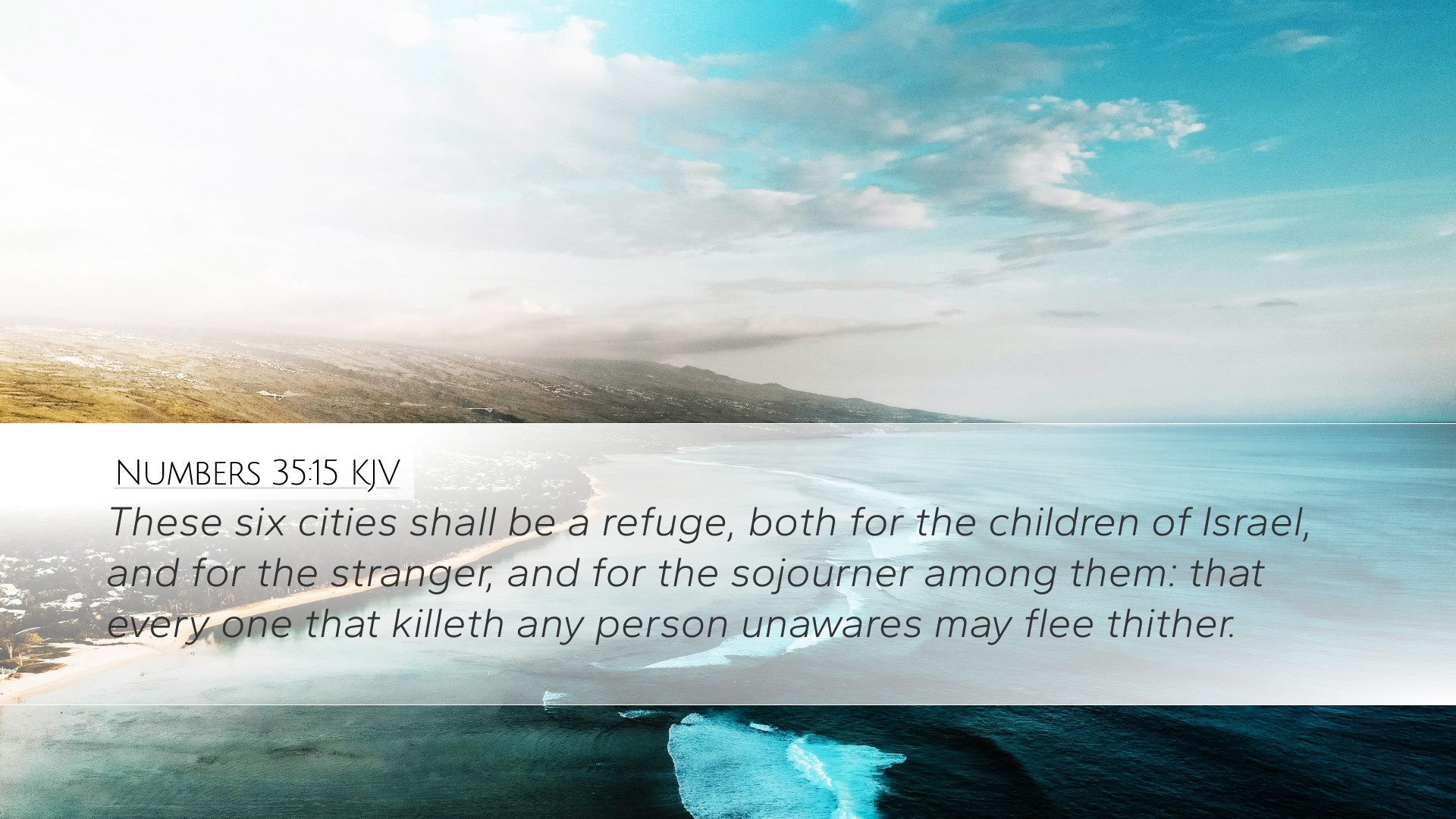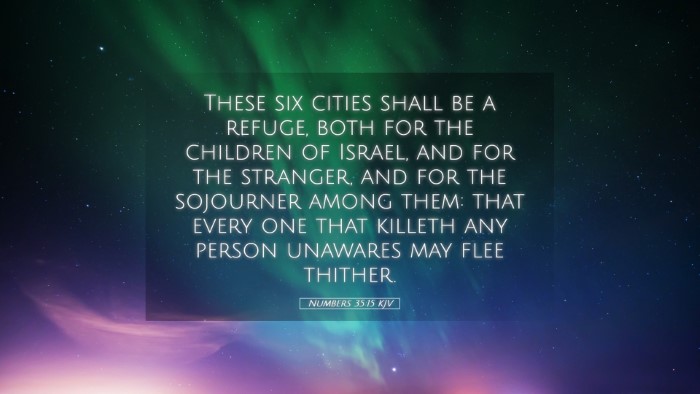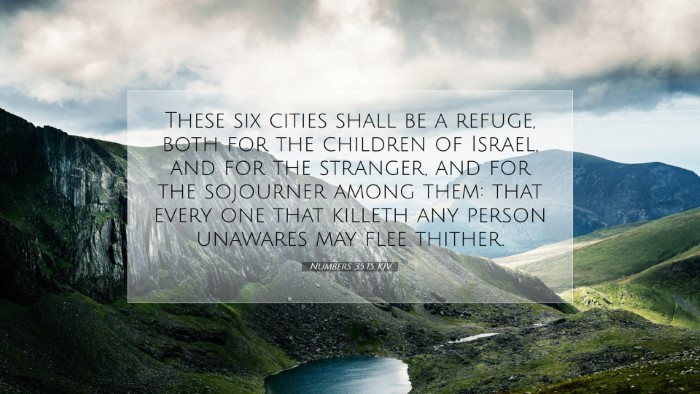Bible Commentary on Numbers 35:15
Verse: Numbers 35:15 - "These six cities shall be a refuge, both for the children of Israel and for the stranger and for the sojourner among them: that every one that killeth any person unawares may flee thither."
Introduction
Numbers 35:15 presents a significant element of justice and mercy within the Mosaic Law. The establishment of cities of refuge underscores God's intent to provide sanctuary and promote justice among His people. This verse emphasizes not only the protection of the Israelites but also the inclusivity extended to strangers and sojourners, highlighting a divine principle of refuge for all.
Exegesis and Theological Insights
The choice of six cities (three on each side of the Jordan) is noteworthy. They serve as appointed places for those who accidentally commit homicide, underlining God's concern for fair judgment without the immediacy of vengeance.
Matthew Henry's Commentary
Divine Provision for Justice: Henry explains that the cities of refuge were a manifestation of God's mercy amidst human sin. The Hebrew term for "refuge" (miqlat) indicates a place to flee for safety, suggesting not only physical sanctuary but also spiritual refuge. By acknowledging accidental death, the law addressed the realities of human frailty and the importance of intention in judgment.
Albert Barnes' Commentary
The Role of the Stranger: Barnes notes the inclusivity of these cities, emphasizing that they were not exclusively for Israelites. This reflects the wider Biblical theme of God’s mercy, extending beyond ethnic boundaries. Barnes elaborates that the stranger and sojourner represent the universal call to safety and embrace of God’s justice. This teaches us about the nature of God's grace, which welcomes all who seek refuge in Him.
- Accidental versus Intentional Harm: The distinction between accidental killing (manslaughter) and intentional murder is pivotal. The cities of refuge functioned as a means to protect those who, without malice, found themselves entangled in grave circumstances.
- Importance of Asylum: The concept of asylum in ancient Israel was revolutionary, as it allowed individuals a chance for fair trial and judicial process—a stark contrast to contemporary practices of immediate retribution.
Adam Clarke's Commentary
The Purpose of the Cities: Clarke puts forth the idea that the cities served not only as physical locations but also symbolically represented God’s grace and mercy. They served a dual purpose: to protect the innocent and to maintain social order. Clarke emphasizes that God's intention was not merely punitive but restorative.
Community and Responsibility: By establishing such cities, God encouraged the communities to look after one another, stressing that the well-being of every individual contributes to the greater good. Clarke also suggests that the provision of these cities reflected an inherent value in human life, reinforcing the sanctity of life, even for those who made grave mistakes.
Practical Applications
This passage offers several key takeaways for contemporary believers:
- Grace in Times of Crisis: The cities of refuge symbolize the unmerited favor available from God. Just as these cities provided safety, believers today can find refuge in Christ amidst their failures and sufferings.
- Inclusivity of God's Love: The openness of the cities indicates God's heart for all people. The Church should mirror this inclusiveness, providing welcome and sanctuary for those on the margins of society.
- Moral and Ethical Responsibility: This passage invites believers to recognize the importance of intent and consequence in their actions. It encourages them to build communities characterized by forgiveness and accountability.
Conclusion
Numbers 35:15 serves as a profound reminder of God's commitment to justice, mercy, and community. The cities of refuge not only provided safety for unintentional offenders but also conveyed deep theological truths about human nature, divine grace, and the call to live harmoniously. For pastors, students, and theologians, this text offers ample opportunity to explore themes of forgiveness, judicial systems, and the nature of God’s love in both the historical and contemporary context.


